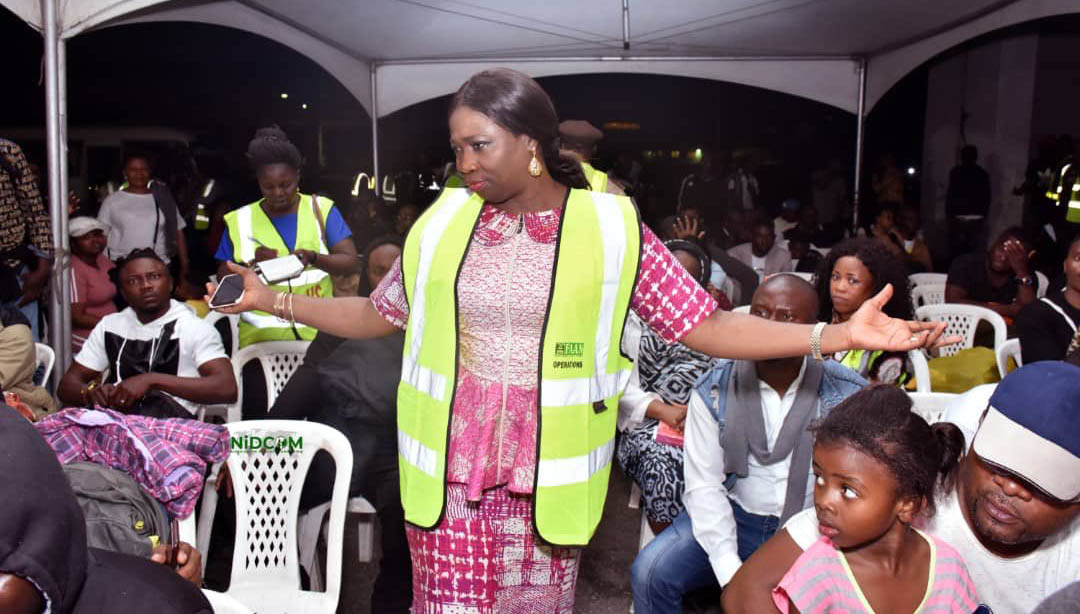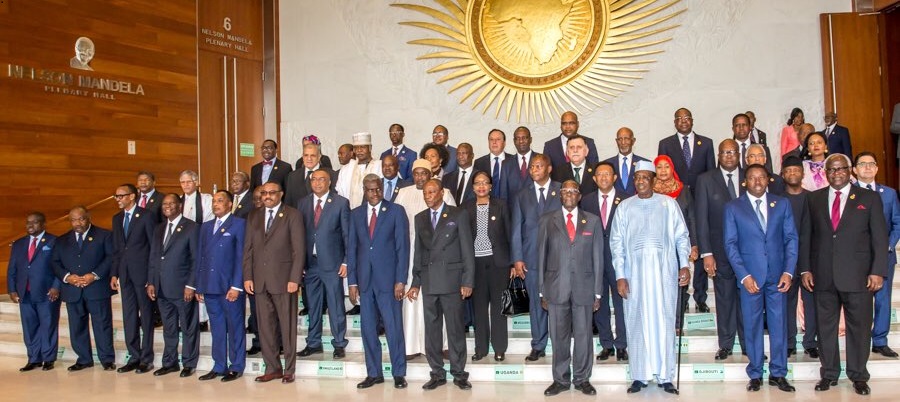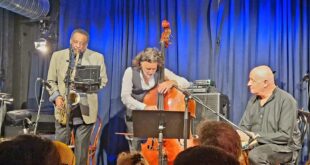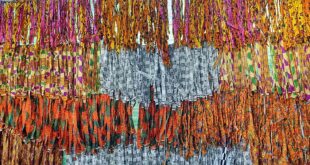The leader of Ghana’s left-wing political movement, Economic Freedom Fighters, has made a case for a united continent, stressing it is the only way Africans can achieve true economic development. Ernesto Kofi Yeboah observed that while Africans are fighting among themselves, its wealth is being carted away by Western powers. He spoke at the 1st West Africa Peace Dialogue on September 20, 2019 in Accra. The event was organized by Africa Centre for Peace Building-Ghana, Global Educators for All Initiatives- Nigeria, URI-West Africa and The Emmanuel Ivorgba Foundation. Here is the full text of his speech:
————–
What we are discussing today is very dear to us. The concept of African unity is at the heart of what we do and it is exhilarating to know that other organisations are putting it at the forefront. This issue is more relevant now than it ever before.
The Economic Fighters League is a radical revolutionary non-partisan Nkrumaist movement fighting against the system in place; a system which ensures that only a few are enjoying the wealth of the nation, while the majority are suffering. We must crush this system. We are fighting for:
– A Ghana and Africa which own and control their resources. Currently our resources are owned by White monopoly capital
– A Ghana and Africa where the wealth of the nation is distributed in such a way as to serve the necessities of all rather than the luxuries of a few
– A Ghana and Africa where there is a basic standard of living for all
To achieve these, we recognize that we have to work with our brothers and sisters for a concerted and united African effort for economic emancipation. This is because the system oppressing us operates on an international scale and it is only through unity that we can defeat it – the struggles of Africans in Ghana is not different from the struggles of the Africans in Nigeria or in Sudan or the Congo.

This is what we mean when we say we are Nkrumaist, for Pan-Africanism, which is the total liberation and unity of Africa, is one of the three objectives of Nkrumaism, the other two being Nationalism and Scientific Socialism.
It is in pursuance of this noble ideal that when disaster struck Sierra Leone in 2018, we mobilized relief items and sent to them in solidarity. Likewise when cyclone Idai ravaged Zimbabwe, Mozambique and Malawi six months ago, we again collaborated with the Think Africa Institute to mobilise relief items.
Ladies and gentlemen, we are having this conversation at a time when attacks on fellow Africans in South Africa is still fresh in our minds. Let me point out here that we at the Economic Fighters League are not calling what happened in South Africa “Xenophobia”. What it really is is “Afrophobia”.
Xenophobia is a general fear and hostility towards foreigners. In South Africa, Europeans are not being attacked, Americans are not being attacked; it is Africans who are being attacked. So this hostility is against Africans and we must call it what it is – Afrophobia.
In our press release on the issue, we condemned the attacks unreservedly and called on African governments to unite in action against the South African government, which continues to deny the existence of this problem let alone deal with it.

We also reiterate our position that no African should be a foreigner on African soil. But before the South African incidents, we have had to issue similar statements in the past. Specifically, on 17 June this year, we condemned the sensational media association of our Nigerian brothers and sisters with crime in Ghana. This followed the arrest of some Nigerians involved in criminal activities.
Within the same week, Nigerian traders were attacked, their shops closed at Suame in the Ashanti Region by people who purported to be enforcing a law on trading in Ghana. That law, the Ghana Investment Promotion Centre Act reserves retail businesses to only Ghanaians and if a non-Ghanaian wishes to do retail businesses, they will have to own a certain minimum initial capital.
Laws like that abound across Africa and it is very worrying. The law in Ghana like many others defines nationals from other African countries as foreigners. Therefore to the GIPC Act, a Nigerian or a Togolese is just like a Chinese or a British. This does not make sense. Again, the effect of this law is that it keeps the Africans focused on the bones of the economy and fighting among ourselves while White people – the real foreigners – take away the meat.
Let me give you an example. What are the main drivers of Ghana’s economy? Spare parts? No. Fish? No. Tomatoes? No. Clothing? No. These goods do not value up to even a quarter of the value produced by the main drivers of the economy but these are the ones that have been reserved for us and we have been pitched against our brothers and sisters, fighting and wrangling while the real meat is taken away.

The main drivers of Ghana’s economy are gold, oil and cocoa. These are owned and controlled by White monopoly capital. Take gold for instance. More than 70% of the gold production and export is controlled by five multinational companies of Euro-American origin. The story is not different from what pertains in our oil sector.
In fact, this situation is not only in Ghana but the whole of Africa. Our natural resources primarily benefit foreigners more than us. Kwame Nkrumah warned us about this in his book, “Class Struggle in Africa”, published in 1970, where he wrote, “Africa is a paradox which illustrates and highlights neo-colonialism. Her earth is rich, yet the products that come from above and below the soil continue to enrich, not Africans predominantly, but groups and individuals who operate to Africa’s impoverishment”.
I am bringing this quote to help us understand that we are not just dealing with isolated incidents of attacks in South Africa and closing of shops in Ghana. We are dealing with a system of interconnected and interdependent parts working together to keep us down.
This system is what Kwame Nkrumah described as Neo-colonialism – it is the system by which our economies are controlled not by us but by external forces.
With this realization, we will be able to know that these issues whether you call them trade feuds or Afrophobia represent just one part of the problem.
Another is border disputes. Recently, there have been the Ilemi Triangle dispute between Sudan and Kenya; the Nadapal boundary dispute between Kenya and South Sudan; the dispute over Lake Malawi between Tanzania and Malawi; the dispute over the Mingino Islands between Kenya and Uganda; maritime disputes between the Cameroon and Nigeria; territorial disputes on the Island of Mbanié between Gabon and Equatorial Guinea; and many more.
Once again, let us quote from Kwame Nkrumah when he told his fellow African leaders in 1963 in Addis Ababa, “There is hardly any African State without frontier problem with its adjacent neighbours. It would be futile for me to enumerate them because they are already familiar to us all. But let me suggest to Your Excellences, that this fatal relic of colonialism will drive us to war against one another as our unplanned and uncoordinated industrial development expands, just as happened in Europe. Unless we succeed in arresting the danger through mutual understanding on fundamental issues and through African Unity, which will render existing boundaries obsolete and superfluous, we shall have fought in vain for independence. Only African Unity can heal this festering sore of boundary disputes between our various States”.
Another issue is the way we as ordinary Africans see one another. These borders were not created by us. And do you think those who created them were doing that to serve our interest? Certainly not. These were deliberate acts of theft by those who wanted to steal our wealth, who saw that the only way to have their way was to divide us. They succeeded and till date, we have these mental barriers that make Africans in Ghana see Africans in Nigeria as strange and different.
But if division is the weapon employed by colonialism and neo-colonialism, then the only way to defeat this problem is unity. In his book, Neo-colonialism, the last stage of imperialism, Kwame Nkrumah wrote, “all the methods of neo-colonialism have pointed in one direction, the ancient, accepted one of all minority ruling classes throughout history – divide and rule. Quite obviously therefore, unity is the first requisite for destroying neo-colonialism”.
At the Economic Fighters League, we are clear in our minds about this. As Nkrumaists, we believe in an Africa united under one federal government, one central defence, one foreign policy, one currency, one citizenship, one market.
Whichever way you look at it, African unity is the only way we can reach the Promised Land. United, there will be no Afrophobia in South Africa against Nigerians or Ghanaians or Zimbabweans; there will be no law in Ghana that sees Nigerians as foreigners; there will be no border disputes between Ghana and Ivory Coast or between Kenya and Uganda because we will all be just African citizens.
With these behind us, we will spend our time and energy solving our many problems and harnessing our enormous potential instead of fighting among ourselves while our wealth is being stolen.
A house divided against itself cannot stand. Africa Must Unite!
Thank you.
 THE AFRICAN COURIER. Reporting Africa and its Diaspora! The African Courier is an international magazine published in Germany to report on Africa and the Diaspora African experience. The first issue of the bimonthly magazine appeared on the newsstands on 15 February 1998. The African Courier is a communication forum for European-African political, economic and cultural exchanges, and a voice for Africa in Europe.
THE AFRICAN COURIER. Reporting Africa and its Diaspora! The African Courier is an international magazine published in Germany to report on Africa and the Diaspora African experience. The first issue of the bimonthly magazine appeared on the newsstands on 15 February 1998. The African Courier is a communication forum for European-African political, economic and cultural exchanges, and a voice for Africa in Europe.















